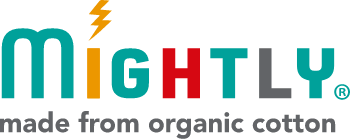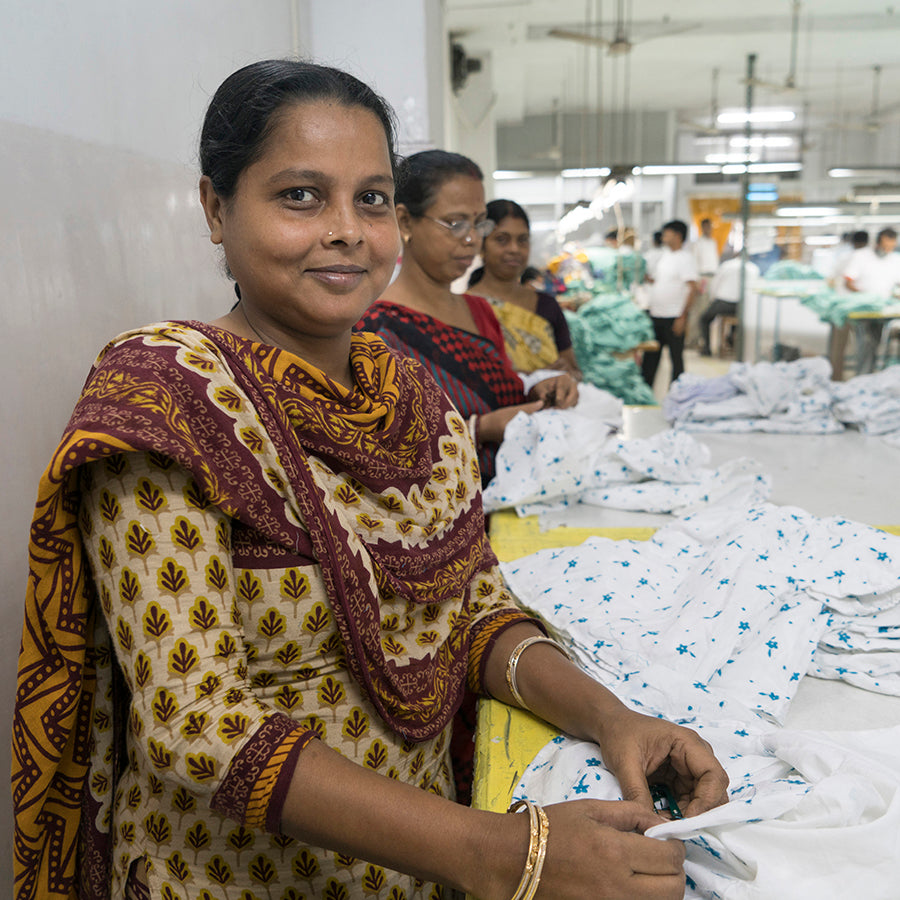
"By working at this factory, I'm able to support my family and meet daily needs. Every year when we receive our Fair Trade premiums, I'm able to put them into savings - which may become important later in life. I remember the first year when the factory joined Fair Trade, I was able to buy a bicycle for my son to ride to school - I was so proud! If the customers buy our products, we can benefit and improve our lives while also providing good clothing for people all over the world."
Rehana Middey, 34, works in finishing at the Rajlakshmi Cotton Mills in Howrah.
Fair trade is a global movement made up of producers, companies, consumers, advocates, and organizations working towards the mission of eliminating poverty and enabling sustainable development for farmers, workers, their families, and their communities around the world.
When you see a product with the Fair Trade Certified™ seal, you can be sure it was made according to rigorous social, environmental, and economic standards. Fair Trade USA, the non-profit organization that pioneered the fair trade movement and oversees the certification process, works closely on the ground with producers and certifies transactions between companies and their suppliers to ensure that the people making Fair Trade Certified goods work in safe conditions, protect the environment, build sustainable livelihoods, and earn additional money to empower and uplift their communities. Just last year, purchases of Fair Trade Certified products and other donations from supporters helped improve the lives of nearly one million farmers, workers, and fishermen in more than 45 countries.


When you buy Fair Trade Certified™ children’s organic cotton leggings, pajamas, dresses, hoodies, or shirts, the garment workers at Rajlakshmi Cotton Mills earn an additional Fair Trade Premium that goes into a Community Development Fund. A democratically elected committee of workers, called the Fair Trade Committee, votes on how the funds will be best spent based on dialogue and proactive problem-solving around their community’s greatest needs. In normal times, that may mean putting money towards education, home sewing machines, and clean bedding; in the current covid era, that can mean more funding for emergency funds for basic necessities, and financial support for ill workers. By purchasing Fair Trade Certified clothing, you are supporting better working conditions for the people who make them.
Mightly Made for Mightly Kids



